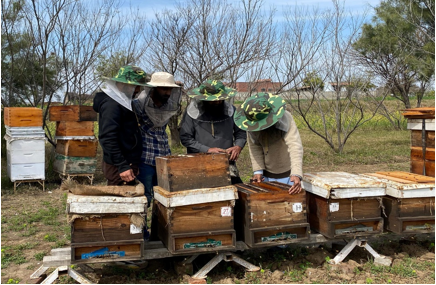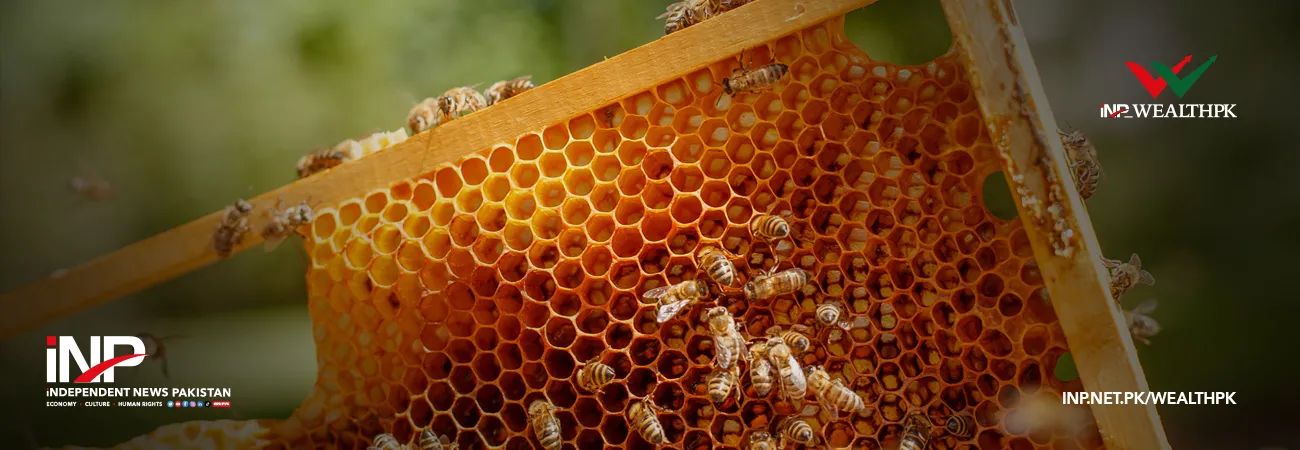INP-WealthPk
Arooj Zulfiqar
Pakistan’s beekeeping industry, though largely composed of small-scale ventures, has immense potential to contribute to rural development, economic growth, and environmental sustainability, reports WealthPK.

With its diverse forests and vegetation, Pakistan has a natural advantage for beekeeping. Regions like Chakwal, Attock, Kohat, and Swat offer a rich flora for high-quality honey production. “Encouraging small-scale farmers to integrate beekeeping with the existing agricultural practices can diversify income streams and build resilience against market volatility and climate challenges,” said M. Ghulam, Senior Scientific Officer at the National Agricultural Research Centre (NARC). “Beekeeping also plays a pivotal role in boosting agricultural productivity through pollination. Enhanced pollination not only increases crop yields but also supports food security, making bees an integral part of the agricultural economy,” he said. Despite these advantages, several obstacles limit the industry’s potential.
Lack of training, access to modern techniques, and inadequate marketing strategies constrain the small-scale beekeepers. Moreover, limited collaboration between the producers and exporters reduces the ability to tap into the lucrative global honey market. Honey has become more popular because people have realized that it has many health benefits. The world honey market is worth around $7.84 billion, and the amount of honey that countries export around the world has grown by 35% over the last 10 years to a total value of $2.3 billion. He further highlighted the need for better management of Pakistan’s forests to sustain bee populations and ensure consistent honey production. Ghulam emphasized that while small-scale operations dominate, scaling up requires investment in modern equipment, branding, and export channels.
He added, “To unlock the full potential of beekeeping industry, there’s a need to introduce capacity-building programs for small-scale beekeepers, establish honey cooperatives for better market access, and foster partnerships between the public and private sectors. Additionally, integrating beekeeping into agro-processing initiatives can help enhance value addition and create export-ready products.” By addressing these challenges and leveraging natural resources, Pakistan can transform its small-scale beekeeping ventures into a robust industry that contributes significantly to the rural livelihoods, environmental sustainability, and economic growth.
Talking to WealthPK, M. Ahmed, a beekeeper from Chakwal, said currently, the country has approximately 27,000 beekeepers managing around 1.1 million bee colonies, producing 15,000 metric tons of honey annually. This places Pakistan in the 20th position globally in honey production. Most beekeeping operations remain small-scale, catering to personal or local consumption, while the medium-sized enterprises market processed honey under their brands. However, the sector lacks large-scale investment and engagement from major food processing companies, hindering its scalability.
Credit: INP-WealthPk




